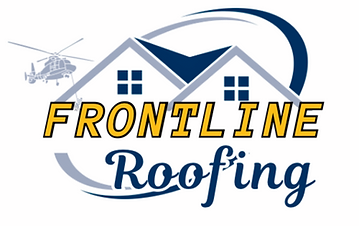
# Roof-Over vs. Tear-Off: When Each Option Makes Sense
- Trey Gervais
- Aug 10, 2025
- 2 min read
When your roof needs replacement, you'll face a critical decision: install new shingles over the existing roof (roof-over) or strip everything down to the deck (tear-off). This choice impacts your home's protection, value, and your budget for decades.
Here's how to make the right decision.
## Understanding Your Options
**Roof-Over** installs new shingles directly over existing ones. It's faster, costs 20-25% less, and creates minimal disruption. The catch? You can only do this once under most building codes, and only if conditions are right.
**Tear-Off** removes everything down to the roof deck, allowing complete inspection and repair of underlying issues. It costs more upfront but provides superior longevity and performance.
## When Roof-Over Works
Roof-over makes sense when your existing roof meets strict criteria:
- **Single layer only**: Building codes typically allow maximum two layers of asphalt shingles
- **Structurally sound**: No soft spots, sagging, or water damage in the deck
- **Flat-lying shingles**: Existing shingles must lie flat without significant curling or missing sections
- **Short-term solution**: You plan to sell within 5-10 years or need immediate, budget-conscious protection
The savings are real—typically 20-30% less than tear-off due to eliminated disposal costs and reduced labor time.
## When Tear-Off Is Required
Complete replacement becomes necessary when:
- **Two layers exist**: Adding a third layer violates building codes
- **Structural damage present**: Water damage, soft decking, or sagging requires deck repair
- **Extensive shingle damage**: Widespread curling, missing shingles, or granule loss
- **Insurance requirements**: Many insurers prefer complete replacement for full coverage
- **Long-term ownership**: You're staying in the home and want maximum lifespan
## Making the Right Choice
**Evaluate honestly**: If your roof shows significant wear, has experienced leaks, or approaches 20+ years old, tear-off typically provides better value despite higher upfront costs.
**Consider your timeline**: Roof-over buys time but doesn't solve underlying issues. If problems exist beneath the surface, you'll pay for tear-off eventually—plus the cost of roof-over.
**Think resale**: Complete replacement adds more value and provides stronger selling points than layered roofing.
## Professional Assessment Is Essential
Never make this decision without professional evaluation. A qualified contractor should inspect your roof deck condition, assess structural integrity, and evaluate ventilation adequacy. This inspection reveals whether roof-over is even viable for your situation.
Red flags during assessment include:
- Daylight visible through roof deck from attic
- Soft or spongy areas when walking the roof
- Water stains or mold in attic spaces
- Inadequate ventilation systems
## The Bottom Line
Roof-over works for structurally sound, single-layer roofs when budget constraints exist and long-term ownership isn't planned. For everything else, tear-off provides superior protection, longevity, and value.
The cheapest option isn't always the smartest. A roof protects your most significant investment. Choose the approach that provides the protection your home deserves.
**Ready to make the right decision for your roof?** Contact our certified professionals for a comprehensive assessment. We'll evaluate your specific situation honestly and recommend the approach that serves your best interests—not just our bottom line.





Comments